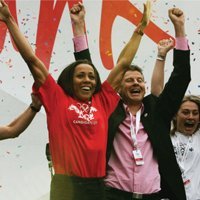
The Olympic and Paralympic Games are the world’s largest peace-time event. The modern Olympic Games were first held in Greece in 1896 and since 1960, the Paralympic Games have provided athletes with disabilities with the opportunity to compete at the highest level. All athletes are encouraged to live by a set of shared principles -the Olympic and Paralympic Values of friendship, equality, respect, courage, determination, excellence and inspiration.
The Games are held every four years in a different city and in 2012 London will be hosting the Games. London started the bidding process to be a host city in 2003. Over two years the bid team put together a plan to show how the London Games would be staged. The team presented the plans to the International Olympic Committee (IOC) in Singapore in 2005, along with four other competing cities. After evaluation, the IOC voted for the city that they felt was the most suitable to host the Games in 2012. London received 54 votes in the final round compared to the 50 votes awarded to Paris and so became the host city.
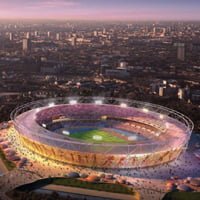
The London Organising Committee for the Olympic Games and Paralympic Games (LOCOG ) has been set up to take responsibility for planning, organising and delivering a memorable Games in 2012. This is a huge task. The £2 billion needed to organise and run the Olympic and Paralympic Games has to be raised by LOCOG from the private sector. This is achieved through selling sponsorship, merchandising, broadcasting rights and tickets for events.

The London 2012 Games will bring together more than 14,000 athletes from 205 countries. Spectators and sports enthusiasts will buy nine million tickets and billions of people around the world will watch the event on TV. Ensuring everything runs smoothly is a tough challenge and LOCOG cannot do it on its own. It has to work closely with many partners and stakeholders to make it happen. This case study shows how creating a clear vision and set of values has made it possible to establish clear objectives for delivering an unforgettable Games.
The vision
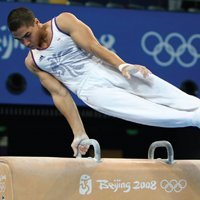
A vision is an idealised picture set out in words. It gives everyone involved in a venture or project the same view of what is to be achieved. Directors or owners of an organisation set a vision to provide a clear direction for its activities. The vision for London 2012 is: ‘to use the power of the Games to inspire change’ . LOCOG wants to inspire change in lots of different ways. It wants to demonstrate that the London 2012 Games are about:
- more than sport they will include culture, education, the environment and programmes with wider benefits. For example, through a series of major projects linked to the cultural Olympiad . This is a programme of events in, for example, art, sport or music.
- more than London the benefits and excitement from the Games will be felt across the UK and around the world. London 2012 expects to have around 7,000 direct supplier contracts. These will form supply chains and provide around 75,000 business and education opportunities
- being fully accessible to everyone
- upholding the Olympic and Paralympic Values of friendship, excellence, respect, inspiration, determination, courage and equality.
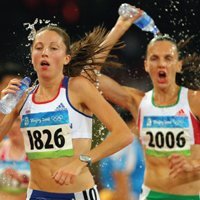
London and the UK as a whole will benefit from hosting the Olympic and Paralympic Games. Economically, East London is being transformed. Thousands of new jobs are being created in the Olympic Park alone. Jobs and training opportunities will be available for local people and across the UK. Local residents are engaged in the planning of the Games and the benefits the project will bring afterwards.
There are also a wealth of benefits to the wider community, such as cross-city transport improvements in London and the chance for a wide range of businesses to be involved. The Games will also leave a legacy of national benefits in the areas of culture, sport, volunteering, business and tourism.
The vision therefore sets out to be inclusive. The message is that everyone can be part of the London 2012 Olympic and Paralympic Games. The London 2012 vision will help people to understand that the Games are more than just a six-week event. What happens in the four years leading up to the Games and what takes place afterwards is just as important as the Olympic and Paralympic events taking place during the summer of 2012.
Values
LOCOG’s values represent what the organisation stands for and reflect the spirit of the Olympic ideals. Its values are interconnected:
Values can affect:
- who LOCOG chooses to do business with
- how it carries out its activities
- the behaviour of the people that work for the organisation.

For example, LOCOG’s values provide a quality standard of how the organisation will achieve its goals. They also provide a clear statement of intent to anyone joining the organisation that this is how they need to behave to keep to the spirit of the Games. It is therefore vital that all the people involved in the planning and delivery of the London 2012 Games understand these values. By demonstrating these values in their work, LOCOG employees will be able to experience the spirit of the Games and achieve its vision.
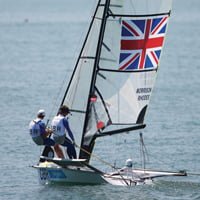
The organisation’s values also affect the management styles employed within the company. For example, if LOCOG is managing the health and safety of large numbers of people at an event, it is appropriate to use an autocratic management style. This is because health and safety issues need clear instruction that everyone must follow without question. However, LOCOG’s values of being inspirational, open and respectful mean that for many areas of its work, it will be able to use a democratic style where people can contribute ideas and discuss best solutions.
Effective communication and consultation between LOCOG and its stakeholders and partners will also help to ensure that everyone will see that its actions are driven by its values. These stakeholders range from young people in schools to sponsors and partners. London 2012 is using new media applications to reach its external stakeholders and has even set up a Twitter account. TV and media campaigns are also important to ensure that LOCOG gets its messages across. LOCOG employees find out what is happening through a variety of means. These include its intranet site (The Knowledge ), an internal newsletter known as Inside and weekly team meetings. These provide an opportunity for the whole organisation to come together and hear presentations on the work taking place.
Objectives

The London 2012 vision sets out a broad aim for everyone to work towards. The LOCOG values help people to work together to achieve this vision but it is important to break the vision down into more precise objectives. LOCOG’s objectives are wide-ranging. It needs to:
- stage an inspirational Olympic and Paralympic Games for the athletes, the Olympic Family and the viewing public
- deliver the Olympic Park and all venues on time, to specification and providing for a sustainable legacy
- maximise the economic, social, health and environmental benefits of the Games for the UK, particularly through regeneration and sustainable development in East London
- achieve a sustained improvement in UK sport before, during and after the Games, in both elite performance particularly in Olympic and Paralympic sports and grassroots participation.

LOCOG will work collectively with its partners and stakeholders to deliver these individual objectives. These stakeholders include the Olympic Delivery Authority (ODA), sponsors, the government, nations and regions groups, the public and the media. To be effective, objectives need to be SMART. SMART objectives enable an organisation to measure the effectiveness of actions taken and measure achievements. For example, one of the SMART objectives of the London 2012 transport strategy is to have 100% of spectators travel to the Games by public transport, by cycling or on foot.
- It is specifically related to the transport strategy.
- It is measurable because it is a target for 100% of spectators.
- The transport and infrastructure team involved in delivering the objective have agreed to it. In order to achieve this objective the transport infrastructure, particularly in East London where most of the sporting venues are located, is being re-developed in order to support this objective.
- This ensures that the objective is realistic and can be achieved in time.
This SMART objective helps LOCOG to deliver on its overall objective to ‘maximise the economic, social, health and environmental benefits of the Games for the UK, particularly through regeneration and sustainable development in east London’ . Key performance indicators help to measure if targets have been achieved. For example, LOCOG can measure how many spectators travel to the Games by public transport, cycling or on foot and then compare it against the objective to see if its target has been met.
Objectives in action
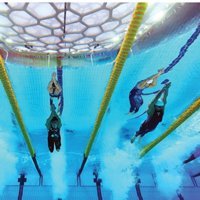
The London 2012 Games have a particular emphasis on engaging young people. London 2012 has pledged to inspire children and young people all around the world. One of the ways in which LOCOG is delivering on that promise is through the official London 2012 education programme, Get Set
The Get Set programme gives children and young people the chance to learn about the London 2012 Games and the Olympic and Paralympic Values. The programme is driven by an interactive website with a range of flexible resources for 3-19 year olds. The use of new media and digital technology brings the Games to life in schools and colleges across the UK. Some of the objectives of Get Set are to:
- provide young people in every school and college across the UK with the opportunity to get involved in the 2012 Games, through being part of an exciting education programme
- support the promotion of the Olympic and Paralympic Values through the Get Set website. This contains games, resources, videos and a series of sponsor-led programmes all providing links to the Olympic and Paralympic Values
- place young people at the heart of the process, involving them in project design, development and delivery. The Get Set team regularly consults young people to make sure that the programme meets their needs
- showcase and celebrate examples of interesting, inspiring and innovative practice. For example, on the Get Set website there are a series of maps which provide stories and illustrations of what schools across the UK are doing in relation to the Olympic and Paralympic Values
- provide opportunities for committed schools, colleges, children and young people to be rewarded, recognised and endorsed for their hard work by encouraging schools to join the Get Set Network. This will create a network of schools and colleges working on projects inspired by London 2012 and the Olympic and Paralympic Values.
The education programme is directly helping to meet LOCOG’s objective of ‘maximising the economic, social and health benefits of the London 2012 Games’. LOCOG can measure the success of the education programme through the number of schools, colleges and young people registering on the Get Set website and comparing this against targets that have been set.
Conclusion
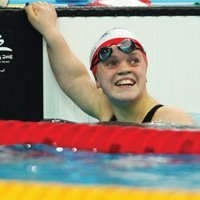
London 2012 provides a tremendous opportunity to create a force for good in society and this is reflected in its core objectives. Creating inspirational Games that will involve everyone provides a range of opportunities. It will extend the hand of friendship and encourage longer term participation in sport and cultural activity across the UK.
London 2012 is not, however, just about sport. It includes a range of social, economic and environmental objectives. An inspirational vision supported by clear values spells out a consistent message for everyone involved. Objectives are SMART so that performance and results can be measured, allowing everyone involved to have a clear set of roles and responsibilities. This ensures that the impact of London 2012 will be felt long after the closing ceremony.
